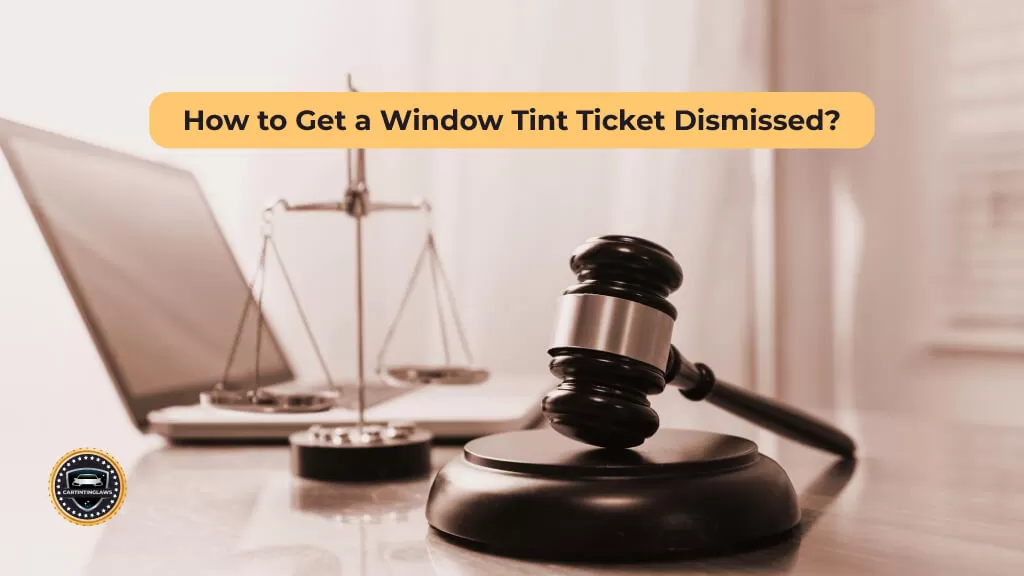
How to get a window tint ticket dismissed? Getting a window tint ticket can be a frustrating experience that can result in financial penalties, increased insurance premiums, and potential points on your driving record. It may also require you to remove or replace the tint, incurring additional costs.
Dealing with the hassle of contesting the ticket and attending court hearings can add to the frustration.
However, understanding the process of how to get a window tint ticket dismissed can provide you with the opportunity to avoid these consequences. By taking the right steps and presenting a strong case, you can potentially overcome the ticket and alleviate the associated frustrations.
Is It Possible to Get a Window Tint Ticket Dismissed
Yes, it is possible to get a window tint ticket dismissed in certain situations. The outcome depends on factors such as local laws, the specific circumstances of the ticket, and the discretion of the judge.
To increase your chances of dismissal, it’s important to familiarize yourself with the relevant regulations regarding window tinting in your area. Understanding the legal limits, exceptions, and any applicable loopholes can help you build a strong case.
Gathering evidence is crucial. This can include documentation showing that your window tint was within the legal limits, photographs demonstrating visibility through the windows, or receipts and certificates from a professional tinting service. Such evidence can support your argument and challenge the ticket.
What Might Get You Window Tint Ticket
There are several factors that could result in a window tint ticket. Let’s walk you through the possible reasons.
- Violating legal limits: Each jurisdiction has specific regulations regarding the darkness and light transmission allowed for window tinting. If your window tint exceeds the permitted levels, you may receive a ticket.
- Non-Compliant Tinting Materials: Some jurisdictions have restrictions on the type of tinting materials that can be used. Using non-compliant materials, such as mirrored or reflective tints, can lead to a ticket.
- Front Window Tint: In many places, there are stricter regulations for front window tint compared to rear windows. If your front windows have a tint that exceeds the legal limits or is prohibited altogether, you may be ticketed.
- Obstructed Visibility: Window tints that significantly impair visibility from inside or outside the vehicle can also result in a ticket. If law enforcement officers determine that your window tint poses a safety hazard by obstructing your ability to see or be seen clearly, you may be cited.
It’s important to familiarize yourself with the specific window tinting laws in your area to ensure compliance and avoid potential tickets. Regulations can vary, so it’s crucial to understand the rules that apply to your jurisdiction.
How to Get a Window Tint Ticket Dismissed
In this guide, we will walk you through the step-by-step process of contesting a window tint ticket and increasing your chances of a successful dismissal.
Understand Local Laws and Regulations
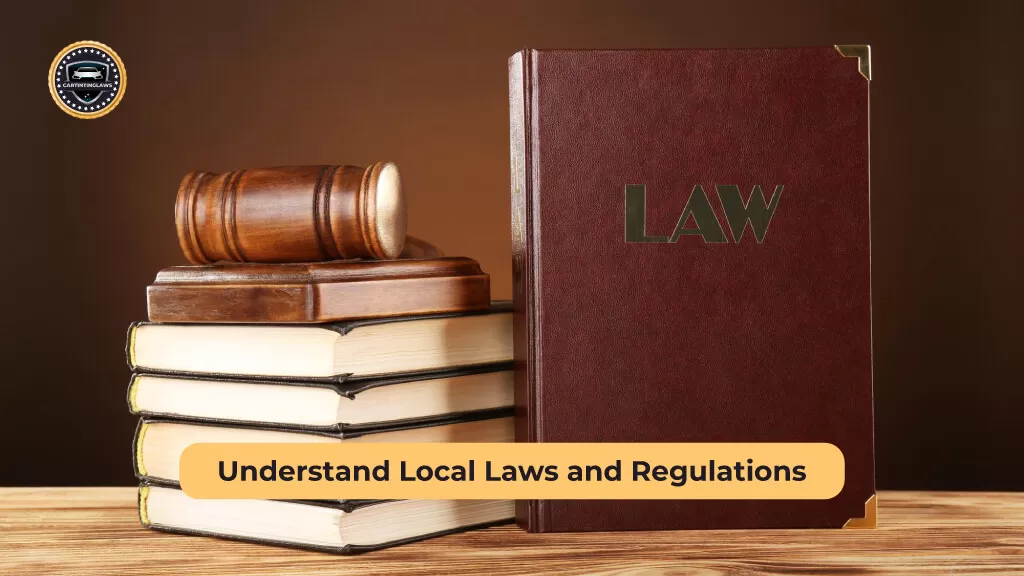
Before proceeding, it’s crucial to familiarize yourself with the window tinting laws and regulations specific to your jurisdiction. Research the legal limits for tint darkness and light transmission, as well as any restrictions on tinting materials and locations. This knowledge will help you build a strong case and argue for dismissal.
Gather Evidence

Building a compelling case requires gathering evidence that supports your argument. Here are some key pieces of evidence to consider:
- Tint Measurement: If you believe your tint is within the legal limits, measure its darkness and light transmission using a tint meter. Take multiple readings and document them as evidence of compliance.
- Tint Installation Receipts: If your vehicle’s tint was professionally installed, gather the receipts or invoices from the tinting service. These documents can serve as proof that the tint was installed by a reputable business and may indicate compliance with local regulations.
- Manufacturer Certificates: Some reputable tint manufacturers provide certificates indicating that their products meet legal requirements. If you have such certificates for your tint, include them as evidence to support your case.
- Photographs: Take clear, well-lit photographs of your vehicle’s windows from both the inside and outside. These images can demonstrate the visibility through the tinted windows and show that they do not obstruct the driver’s view.
Consult with an Attorney

If you’re unsure about how to proceed or believe you have a strong case, it may be beneficial to seek legal advice from an attorney who specializes in traffic violations. They can provide guidance based on their expertise and knowledge of local laws, increasing your chances of a successful dismissal.
Contest the Ticket in Court
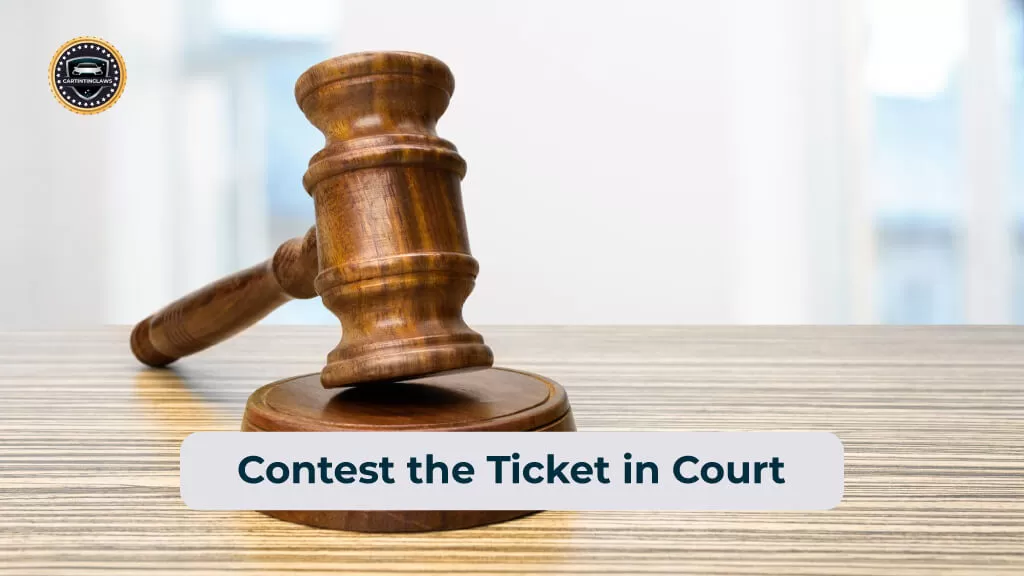
Once you have gathered your evidence and consulted with an attorney (if necessary), it’s time to contest the ticket in court. Follow these steps to present your case effectively:
Research Court Procedures

Familiarize yourself with the procedures followed in traffic court for contesting tickets. Understand the deadlines for submitting evidence, the required documentation, and any specific forms you may need to complete.
Prepare a Clear and Respectful Argument
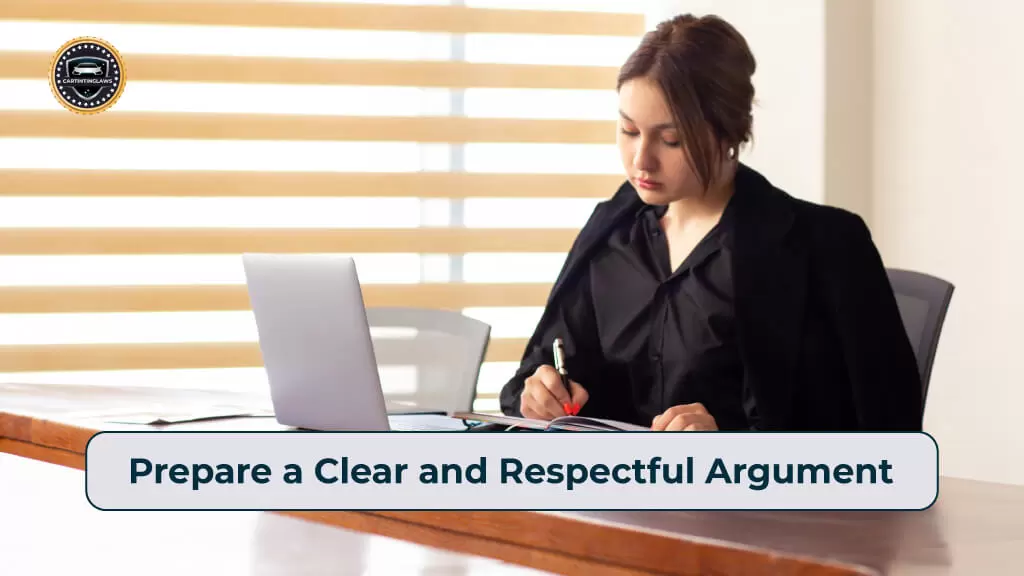
Outline your arguments in a clear and concise manner. Explain how your tint complies with local regulations or presents evidence that challenges the ticket’s validity. Remain respectful and professional when presenting your case.
Present Your Evidence
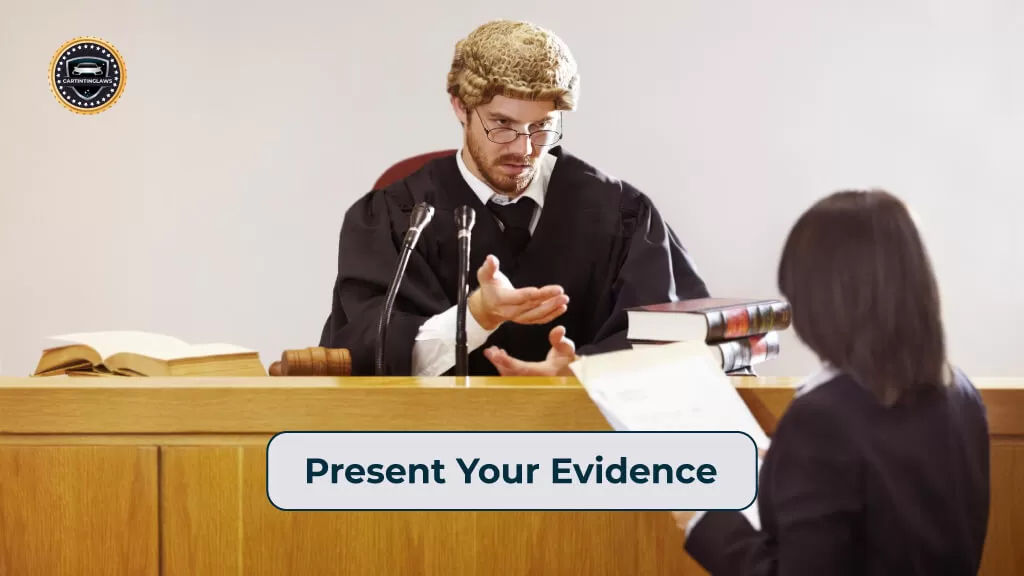
Organize your evidence logically and present it in a compelling manner. Use photographs, measurement readings, receipts, certificates, or any other relevant documentation to support your claims. Clearly explain the significance of each piece of evidence.
Articulate Your Points: Clearly and confidently articulate why the ticket should be dismissed. Refer to local laws, precedents, or any inconsistencies in the ticketing process. Emphasize how your tint does not pose a safety hazard or violate any regulations.
Follow Court Etiquette
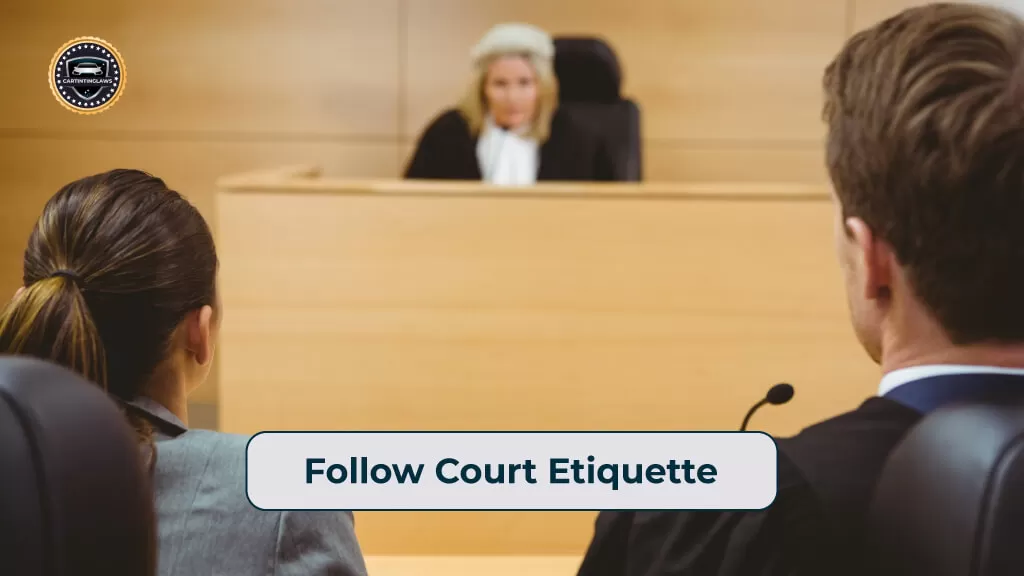
Dress appropriately for court and maintain a respectful demeanor. Follow any instructions given by the judge or court personnel. Address the judge as “Your Honor” and avoid interrupting others during the proceedings.
Accept the Judge’s Decision
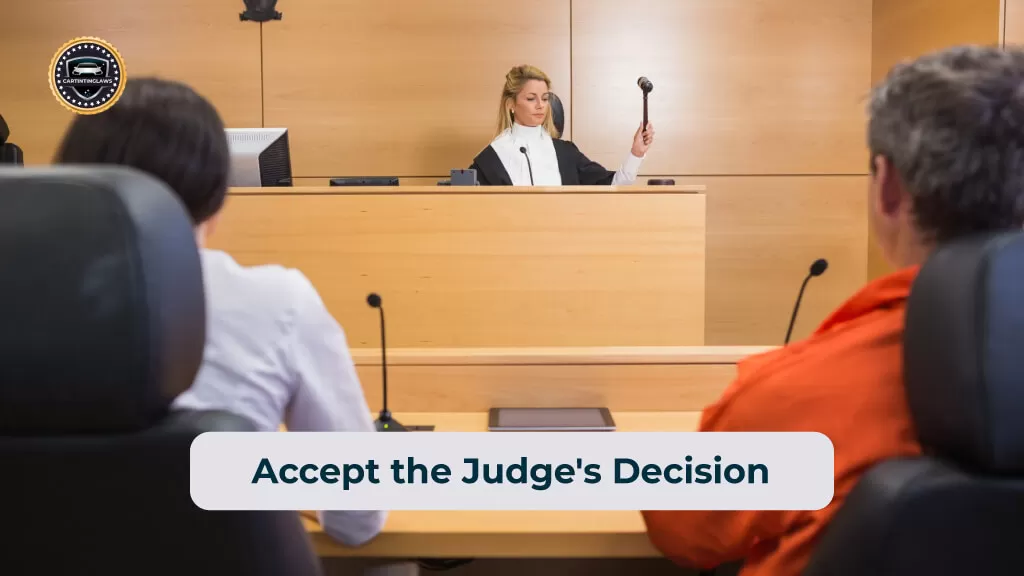
After presenting your case, the judge will make a decision. Be prepared for different outcomes, such as the ticket being dismissed, fines being reduced, or the ticket being upheld. Accept the judge’s decision gracefully and comply with any necessary actions.
What Happens If You Don’t Pay a Tint Ticket
If you don’t pay a tint ticket, there can be various consequences depending on your jurisdiction and local laws. Here are some potential outcomes.
Increased Fines
Failure to pay the ticket within the specified timeframe can result in additional fines and penalties. The amount may increase significantly over time, accumulating more financial burden.
Suspension of Driving Privileges
In some cases, non-payment of a ticket can lead to the suspension or revocation of your driver’s license. This can restrict your ability to legally operate a motor vehicle.
Warrant for Arrest
Persistent non-payment of tickets may result in an arrest warrant being issued against you. This can lead to potential arrest and further legal complications.
Collection Efforts
Authorities may employ collection agencies or other methods to recover the unpaid ticket amount. This can include wage garnishment, seizure of assets, or other means of debt collection.
Negative Impact on Credit Score
Unpaid tickets can be reported to credit bureaus, negatively affecting your credit score and potentially impacting your ability to secure loans or other financial services.
FAQ
How much is a window tint ticket?
Ans. The cost of a window tint ticket can vary depending on several factors, including the jurisdiction, the specific violation, and local laws. In general, the fines for window tint violations can range from around $50 to several hundred dollars. The exact amount will depend on the severity of the violation, whether it is a first offense or subsequent offense, and any additional fees or court costs that may be associated with the ticket.
Can you get a tint ticket out of state?
Yes, you can receive a window tint ticket while driving out of state. Traffic laws vary between states, including those related to window tinting. If you violate the tint regulations of the state you’re in, you may be ticketed.
Address the ticket according to that state’s procedures, which may involve paying the fine or contesting the ticket. Some states have reciprocity agreements, enforcing tickets issued in other states. To avoid tickets and penalties, understand the regulations of the state you’re visiting and ensure compliance.
Is window tint a moving violation?
Window tint violations are generally considered non-moving violations, as they typically involve vehicle conditions rather than the act of driving. However, classifications can vary by jurisdiction, so it’s best to consult local traffic laws to confirm the specific categorization of window tint violations in your area.
Does a tint ticket go on your record?
Yes, a tint ticket can go on your driving record, depending on the jurisdiction and specific laws in your area. Traffic violations, including tint violations, are typically recorded on your driving record. These records are maintained by the Department of Motor Vehicles (DMV) or similar governing bodies responsible for overseeing driver licensing and traffic regulations. It is important to check the laws and regulations in your specific location to determine how tint tickets are handled and whether they will appear on your driving record.
How many tint tickets can you get?
The number of tint tickets you can receive depends on the laws and regulations in your specific jurisdiction. Different regions have different rules regarding window tinting, including permissible levels of darkness for vehicle windows. Violating these regulations can result in a tint ticket.
Typically, each instance of non-compliance with tinting laws can lead to a separate ticket. However, the exact number of tickets you can receive may vary. Some jurisdictions may issue multiple tickets for multiple violations during a single traffic stop, while others may only issue one ticket regardless of the number of violations.
To determine the specific regulations and consequences for tint violations in your area, it is best to consult your local traffic laws or reach out to your local law enforcement agency or Department of Motor Vehicles. They will be able to provide you with accurate and up-to-date information regarding tint tickets and their potential impact.
Wrapping Up!
In conclusion, knowing how to get a window tint ticket dismissed can significantly increase your chances of a favorable outcome. By understanding local laws, gathering strong evidence, consulting with an attorney if needed, and presenting a clear and respectful case in court, you can effectively challenge the ticket.
Remember to emphasize compliance with regulations, highlight any inconsistencies, and showcase evidence supporting your position.
While success is not guaranteed, following these steps gives you the best possible chance of getting your window tint ticket dismissed and avoiding fines or penalties.
